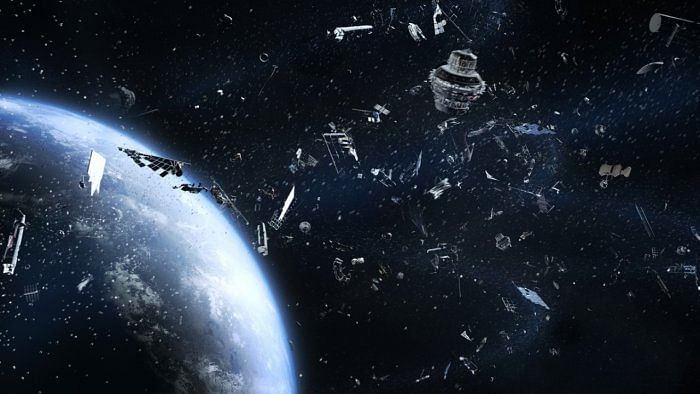
Improving Space Situational Awareness (SSA) on small debris and compliance with mitigation roadmaps are key to the protection of future space missions, J-C Liou, Chief Scientist for Orbital Debris, NASA, said here on Wednesday. He was delivering the plenary talk at a workshop on SSA and Space Traffic Management (STM) – Growing Concerns on Space Environment.
SSA is defined as the knowledge of space objects and their operational environment. “To slow down the debris population increase for a stable and sustainable space environment, the global space community must do a better job, to comply with the existing orbit debris mitigation guidelines and best practices,” he said. The three-day workshop is being organised by Indian Space Research Organisation (Isro) and the Astronautical Society of India, along with Indian National Space Promotion and Authorisation Centre and New Space India Limited.
Liou said millimetre-sized orbital debris represented the highest penetration risk to most operational robotic spacecraft in Low Earth Orbit. While the orbital debris population continued to increase despite decades of efforts to limit the generation of new debris, the mission-ending risk for most operational spacecraft is driven by small, mm-sized orbital debris, he said.
Toward zero-debris missions
In his keynote address, G Satheesh Reddy, Scientific Advisor to the Defence Minister, said the global space community needs to collectively explore the possibilities of zero-debris missions, the protection of space assets and regulations that the community complies with. He also shed light on the evolving nature of SSA, considering how space has become the “fourth dimension of warfare”.
Over Thursday and Friday, the workshop will host talks by global experts on diverse topics pertaining to SSA and STM, apart from academia-industry interactions and a panel discussion on investment opportunities in the sectors.
Isro Chairman S Somanath said the time was right for India to upgrade its SSA and STM systems through enhanced observational capabilities since space is emerging as critical to diverse sectors. “It is important to be aware of this need, to convince the decision makers to invest in this sector and create the essential infrastructure and manpower,” he said.